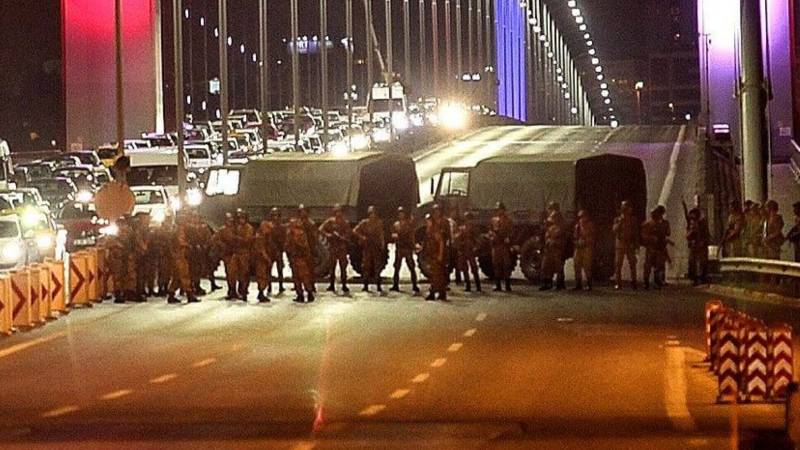Almost a decade after the failed coup that shook Turkey on July 15, 2016, a cloud of uncertainty continues to hover over key decisions taken—or not taken—during the decisive hours before tanks rolled onto bridges and fighter jets roared over Ankara. This week, as the country commemorates the ninth anniversary of the attempt that left 251 people dead and more than 2,000 injured, veteran columnist Mehmet Y. Yılmaz has renewed a string of pointed questions to the very officials who led Turkey’s military and intelligence services that night.
In a sharply worded piece for the independent news site T24, Yılmaz writes, “Gen. Hulusi Akar and then-MİT chief Hakan Fidan still refuse to testify before parliament. Until they speak, critical gaps in the timeline remain”. Yılmaz’s article, circulated widely on social media, argues that the coup “might have been prevented in its infancy” had early warnings been treated with the gravity they deserved.
A Helicopter Tip‐Off That Never Became a Coup Alarm
At 14:45 on the afternoon of the coup, Army Major H.A. walked into MİT headquarters in Ankara and reported an alleged plot to kidnap Fidan using “three helicopters.” Despite the extraordinary nature of the allegation, neither Akar nor Fidan flagged the information as a potential coup warning, Yılmaz notes. Instead, Fidan left for dinner with the then-head of Turkey’s Religious Affairs Directorate. Hours later, at 21:00, Akar himself was detained by putschists and flown to Akıncı Air Base. Critics say a standard military order—keeping all personnel inside barracks—could have exposed the conspiracy before it left the ground.
Why Were Top Leaders Kept in the Dark?
Equally perplexing, Yılmaz observes, is the fact that President Recep Tayyip Erdoğan and Prime Minister Binali Yıldırım were never alerted. According to subsequent testimony, Erdoğan first learned of the uprising from a relative; Yıldırım heard about it from bodyguards and television reports. Fidan, who formally reported to the prime minister, made no direct call. “It is inconceivable,” Yılmaz argues, “that lightly armed police bodyguards could have repelled commandos if they had reached the hotel in Marmaris sooner.”
Fetullahist Officers at Headquarters—By Design or Neglect?
Attention is also turning to staffing choices inside General Staff HQ—many of the officers who spearheaded the coup, such as Brig. Gen. Mehmet Partigöç and Brig. Gen. Mehmet Dişli held sensitive posts at headquarters despite long-standing rumors of Fetullahist loyalties. Yılmaz points out that all such appointments would have required Akar’s explicit approval. Former prime minister Ahmet Davutoğlu has previously claimed that at least one of these officers had been slated for retirement but was “shielded by the state.”
Dişli’s Curious Freedom on Coup Night
Perhaps the most puzzling footnote involves Brig. Gen. Mehmet Dişli, who allegedly helped detain Akar. After the general was freed, Dişli accompanied him by helicopter to the crisis center at Çankaya Palace and remained there for hours, even briefing his ambassador brother in The Hague, before police finally arrested him. Why Dişli was allowed to stay at the epicenter of anti-coup operations remains unexplained.
Political Will—or Its Absence
While hundreds of lower-ranking officers and civilians have been prosecuted, parliamentary efforts to scrutinize decisions at the highest level have stalled. A 2017 investigation report never saw daylight, and opposition lawmakers say their requests to recall Akar—now a ruling-party MP—and Fidan—now foreign minister—have been blocked.
As memorial events unfold across Turkey, Yılmaz vows to keep asking the same questions “every year, on this very date,” until definitive answers emerge. For the families of those who died on July 15, the message is clear: remembrance must go hand in hand with accountability.
Photo: T24
